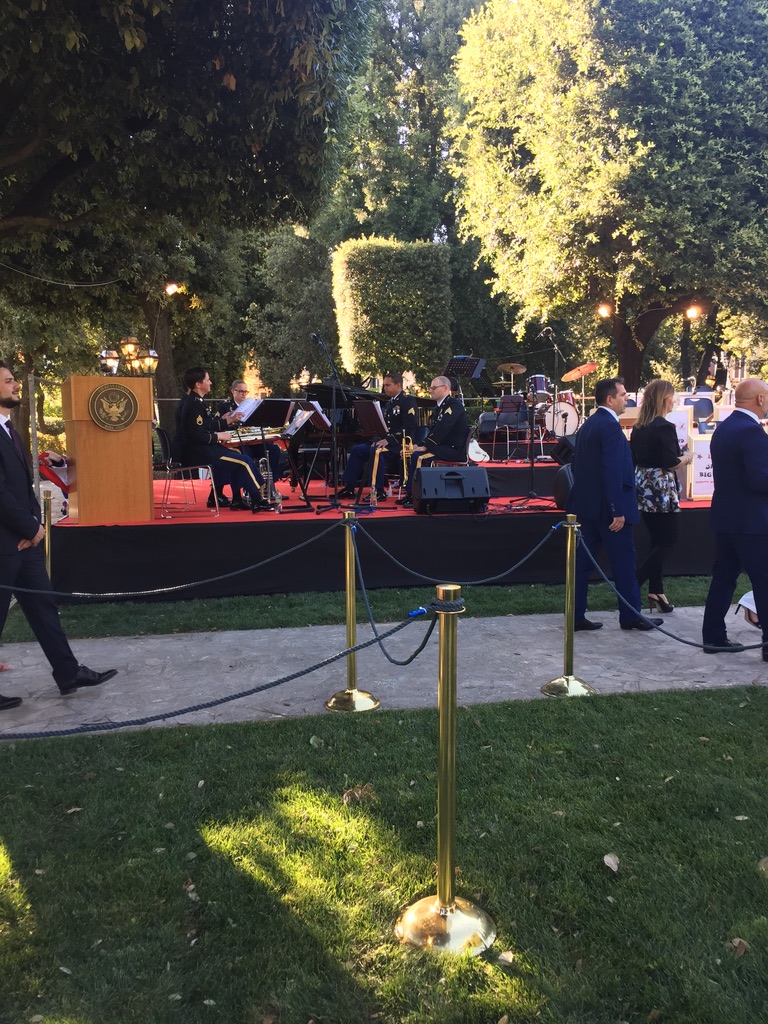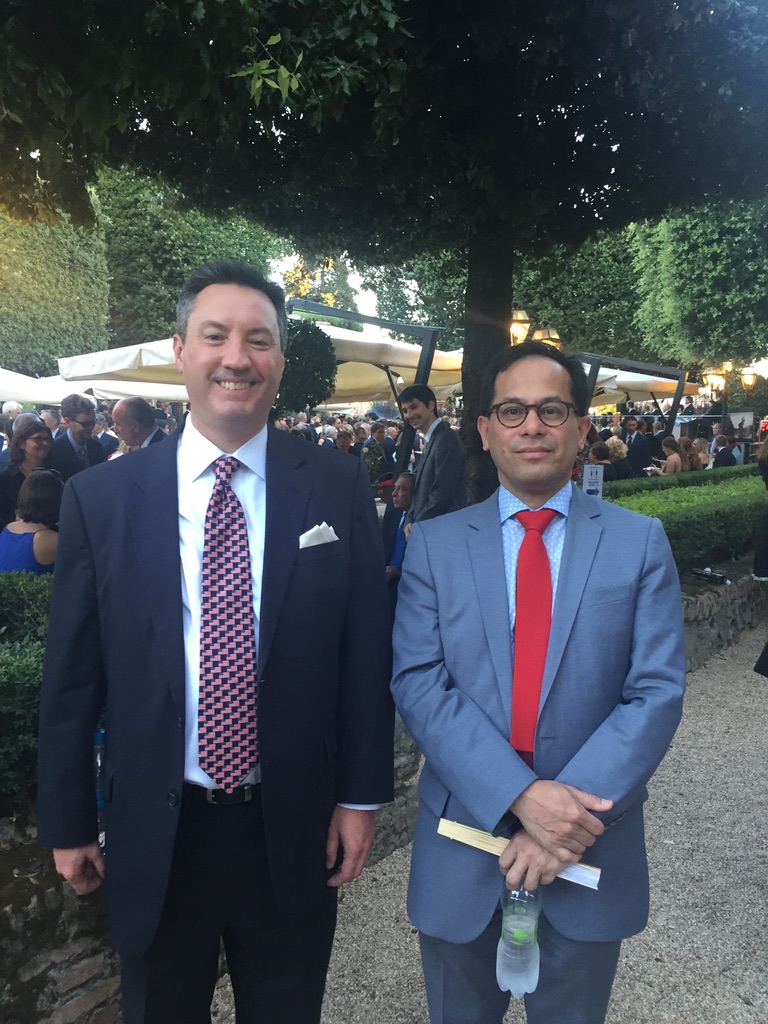Who decides what we eat, drink, and how to go about being merry? Societies range from those that rely heavily on government determination to those that leave most choices to individuals. At one end of the spectrum, the government determines what it is healthy or safe for us to consume and do and at the other end each person freely makes their own decisions about most aspects of their life. Neither of these extremes is absolute, of course. At the freedom end we are not free to violate the freedom of others (steal their property, assault their bodies, etc.). At the cradle-to-the-grave -government-protection end we safely eat, drink, and enjoy the activities the government allows us to.
America flourished economically and culturally because we were largely free to make our own decisions. Government largely enforced property rights and public safety and provided information on which we could make better informed private choices. We innovated and took calculated risks with the deployment of our ideas and flourished.
In recent decades the government has increasingly restricted our choices to what it determined was good or safe. The superiority of our private choices depends on how well informed and responsible we are. While we and the government may both think we are motivated to act in our personal best interest, the incentive to get it right is stronger for the individual actor. And incentives always matter.
Take but one example—the “War on Drugs.” Despite this war, 11,712 people died from drug overdoses in 2000 rising in two decades to 83,558 in 2020 (from 6,190 to 64,183 for opioids). “Drug overdose deaths-fentanyl-Greenville NC” I believe, with many others, that ending the drug war (legalizing the purchase and consumption of them) and instead educating the public about their effects (honest, fact-based information) would reduce such deaths.
The growing, selling and consuming of Cannabis is now legal in 21 states. When I gave into the social pressure in college to take a drag as a joint was passed around, I learned that it makes me less social. Wine was my better option. Not only do I enjoy wine, but I appreciate its socializing properties. So, it has probably been 50 years since I have smoked marijuana. Its not clear whether its legalization along with better information and education on its pros and cons will increase or decrease or leave unchanged its consumption. The destructive prohibition of alcohol and the organized crime syndicates that grew up to circumvent it and its subsequent repeal did not eliminate the damage that alcoholism visited on some people. However, Americans have generally benefited from the reliance on education and persuasion rather than government coercion. Rather than crime syndicates to distribute illegal booze, we have AA and health facilities to help those who have not been able to resist overusing it.
Challenging and sensitive examples concern racial, sexual and religious discrimination. The Civil Rights Law of 1964 attempted to address racial discrimination but in some ways overreached. The case of same sex marriage and the cake baker come to mind. We are still struggling to find the best balance between potentially conflicting individual rights. I fail to see how the refusal of a baker to cook for the marriage of two men (which violates his religious beliefs), interferes with their right and ability to marry —an arrangement society has always seen as beneficial and important (and thus not to be denied to homosexuals).
The case of affirmative action also provides a challenging example of addressing a problem with social attitudes vs coercion. The Supreme Court decided in 1978 that the prohibition against racial discrimination could be violated for a temporary period in the interest of greater racial diversity and balance. Harvard University chose to discriminate against Asian students, who would have been overrepresented if admitted on the basis of academic merit only, in order to admit a larger number of African Americans. Asian students have challenged Harvard’s policy and the Supreme Court is expected to rule next year in “STUDENTS FOR FAIR ADMISSIONS, INC., Petitioner, v. PRESIDENT & FELLOWS OF HARVARD COLLEGE, Respondent” on the question “Should this Court overrule Grutter v. Bollinger, 539 U.S. 306 (2003), and hold that institutions of higher education cannot use race as a factor in admissions?”
I believe that a public discussion of the benefits of diversity to schools and other institutions as well its contribution toward overcoming earlier and existing negative discrimination against African Americans is the more promising and flexible approach to this issue than government coercion. I find it interesting that many federal court judges take race into account in hiring their clerks. “Appeals court judges consider race of their clerks” This is also an interesting perspective: “How liberals lost their way on affirmative action”
The times are changing
In 1978 China began to free up and open its economy to move its economic policies toward ours. Although the Communist Party of China remained in complete control of the political domain, the growth in China’s economy was dramatic. “According to the World Bank, more than 850 million Chinese people have been lifted out of extreme poverty; China’s poverty rate fell from 88 percent in 1981 to 0.7 percent in 2015, as measured by the percentage of people living on the equivalent of US$1.90 or less per day in 2011 purchasing price parity terms.” “Poverty in China”
As I wrote 11 years ago: “Chinese people strike me as more like us than most any other people (including Europeans) I have met. And who do I mean by “us?” I don’t mean just Anglo Saxons like myself. I mean the hard working, innovative, entrepreneur types who are creating most of the wealth in this country like Google founders, Larry Page (American born Jew) and Sergey Brin (Russian born Jew), or Steve Jobs, who was born in San Francisco to a Syrian father and German-American mother, as well as many Anglo Saxons like myself.” ‘My G20 trip to China”
Sadly, Xi Jinping has been reversing this free market trend with very damaging results to economic growth and personal privacy and freedom in China.
Sadder still, the United States has reversed direction since 9/11 as well, though more slowly. Not only has our government increasingly intruded into our privacy (it didn’t end with Edward Snowden’s revelations: “Civil rights-Brennan-domestic terror-white supremacy”), but it has flooded the economy with excessive regulations, increasing trade restrictions and even the launch of industrial policies and subsidies that violate WTO rules. “US chip war to hit allies as hard as it does China” “Competing with China” Our championing of the rule of law is growing increasingly hollow. Asset forfeiture provides but one example: Coats on the abuse of civil forfeiture” and George Will on civil forfeiture nightmare”
How can this be? Why do we seem to want to be more like China? Many of today’s voters had not been born when the Berlin Wall fell in 1989. We must make the case for free markets and limited government again and again, but in a way that is understood by, and appeals to the concerns and sensitivities of, generations X and Z and our future children. “Global protests-democracy-autocracy”



